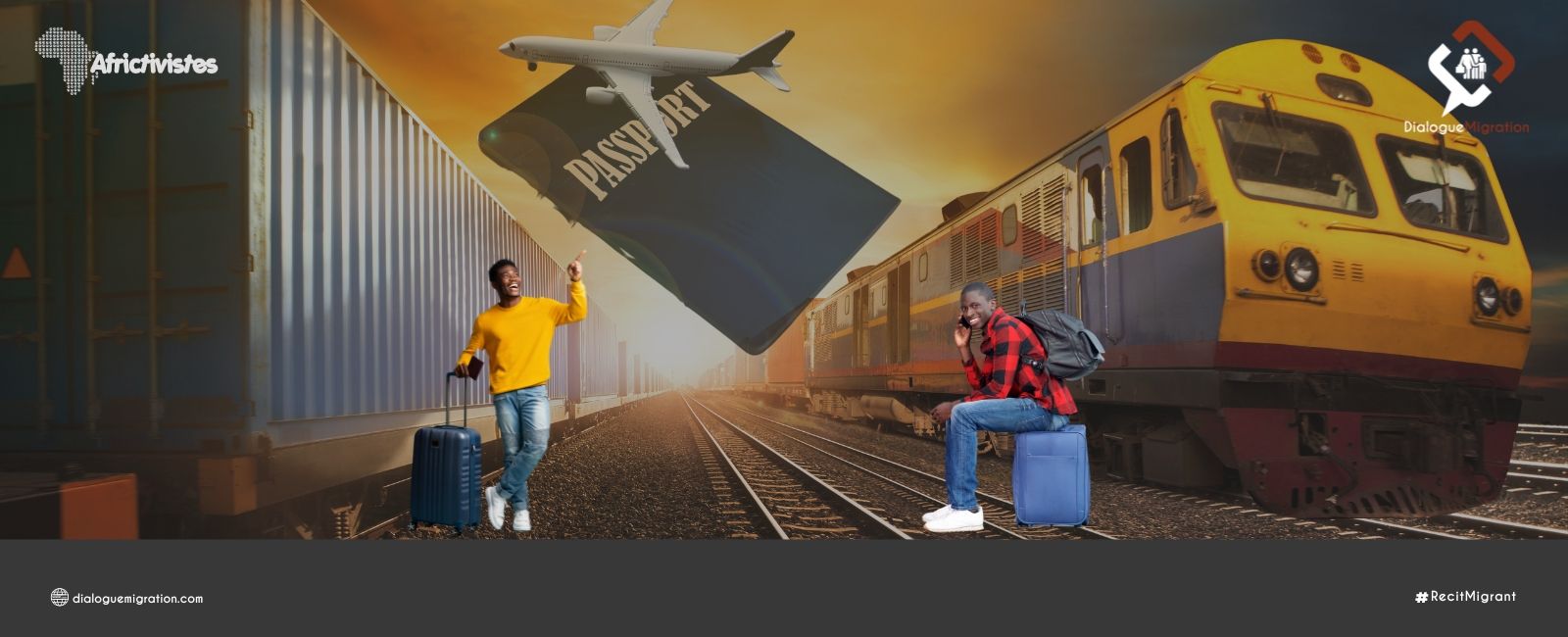

Migration is neither a problem nor a crime. Throughout the history of mankind, people have always felt the need to move from one part of the world to another to find better living conditions or for various other reasons. The advent of communities and borders at a certain stage of life on this planet has been accompanied by certain rules that have evolved greatly in the 21st century. As a result, a Sahelian deprived of the minimum subsistence in his/her native land can no longer aspire to move spontaneously and without constraint to France, the Gulf region or America. Whereas for people in the Northern countries eager for discoveries or wealth and other natural resources, the journey to the South is often made without problems. What rights do “irregular” migrants have in the host country?
What is a Migrant and what is a refugee, according to international conventions and organizations? What can be done to ease the constraints and facilitate the movement of people from one country/continent to another? What are the responses of African countries to the West’s restrictive migration policy? These are among the questions that Dialogue Migration asked two experts in the field who shed light on the issue.
Dr. Mélodie Beaujeu, a graduate of the Centre for European Studies (CEE), Consultant specialized in international migration for various international organizations and French cooperation organizations, addressed with us the first four questions on the technical aspects that frame the movement and residence of migrants in their host countries.
In the current global context of wars, poverty and famine, do people who leave their countries for other countries have the legal basis to move there?
Mélodie Beaujeu: Yes, if they obtain refugee status according to the criteria of the Geneva Convention (for wars, political refugees but not poverty or famine).
Apart from refugees, how are people seeking better living conditions, which are denied reception in Western countries, protected by international law?
MB: So these are illegal or undocumented immigrants who have not obtained a
right of residence. This varies from country to country (in terms of social rights) but at least their fundamental rights must be respected according to the Universal Declaration of Human Rights. Also check the International Convention on the Rights of Migrant Workers and Members of Their Families, which also includes undocumented workers for signatory states (very few in Europe).
The borders that separate countries, continents have long been an obstacle to the free movement of goods and people. How do international law and its practitioners like you intend to remedy this in order to reorganize and lighten travel from the countries of the South to those of the North?
MB: We need to develop opportunities for legal or regular migration, taking into account the needs of the host countries (which need labor in many sectors) but also those of the countries of origin (brain drain). The current problem is the lack of rationality on these issues and the wide variations between the governments of the Western countries.
What are the legal obstacles for countries like Senegal to the application of reciprocity on the granting of visas vis-à-vis European countries?
MB: It seems to me that there has been an attempt to do that in the past. The risk would be the escalation of restrictions according to an “eye for an eye / tooth for a tooth” logic that would hardly be constructive or beneficial. As far as Senegal is concerned, this would clearly be an obstacle to development cooperation and tourism.
Dialogue Migration also handed the microphone to Professor Aly Tandian, President of the Senegalese Observatory of Migration. He spoke about the harassment experienced by African visa applicants in foreign embassies and consulates; but also on the conditions surrounding asylum.
An African who submits a complete visa application file is often rejected by the foreign embassies. Does he have the possibility to bring the case before the international courts and see his case?
Aly Tandian: If the consular authorities of the visa applicant reject the visa application, the visa applicant can ask them to review their decision or refer the matter to the Appeals Board against visa refusal decisions if it is the board of France. It should be remembered that a decision to refuse a visa can take two forms. It is expressed if you receive a written notification of refusal from the Consulate; the refusal is implied if you do not receive a reply within two months of submitting your application. As regards to France, since 1 November 2016, consular authorities have been required to give reasons for their decisions to refuse visas for foreign students, which remains to be verified for other categories of visa applicants.
Still with regard to France, if the non-contentious appeal has not been successful, the visa applicant may appeal to the Appeals Board against decisions refusing an entry visa to France (CRRV). This approach is a mandatory preliminary before any appeal to an administrative judge. It must be made within 30 days of the finding of an express or implied refusal of a visa. The matter may be referred to the Appeals Board against decisions refusing an entry visa in France by the visa applicant, his lawyer or a family member with a mandate.
What are the procedures for an African, whose country is not in conflict, to get an asylum, refugee status in a European country?
AT: You know, refugee status is recognized pursuant to Article 1 A2 of the Geneva Convention of 28 July 1951 which stipulates that: “the term refugee applies to any person who has a well-founded fear of being persecuted for reasons of race, religion, nationality, membership of a particular social group or political opinion, is outside the country of which s/he is a national and is unable or, owing to such fear, is unwilling to avail him/herself of the protection of that country; or who, if s/he has no nationality and is outside the country in which s/he was habitually resident as a result of such events, is unable or, owing to such fear, is unwilling to return.” Persons recognized as refugees are placed under legal and administrative protection; they are intended to benefit from a residence card valid for 10 years pursuant to Article L.424-1 if the request is made.
Difference between Migrant and Refugee
On the basis of the definitions drawn up by the International Organization for Migration and taken up by Dialogue Migration, a refugee is a person who, owing to well-founded fear of being persecuted for reasons of race, religion, nationality, membership of a particular social group or political opinion, is outside the country of nationality and who is unable or, because of such fear, is unwilling to avail him/herself of the protection of that country ; or who, if s/he has no nationality and is outside the country in which s/he was habitually resident as a result of such events, is unable or, owing to such fear, is unwilling to return to it, according to the Convention relating to the Status of Refugees.
As for the migrant, it is a generic term not defined in international law which, reflecting common usage, refers to any person who leaves his place of usual residence to settle temporarily or permanently and for various reasons, either in another region within the same country or in another country, thus crossing an international border. It encompasses a number of well-defined legal categories of persons, such as migrant workers; persons whose particular types of movements are legally defined, such as smuggled migrants; and those whose status and forms of displacement are not expressly defined by international law, such as international students.


